Overview of Ranitidine
Ranitidine, formerly marketed under the brand name Zantac among others, is a medication that decreases stomach acid production. Classified as a histamine-2 blocker, the drug acts on cells in the stomach lining to reduce acid production. Over-the-counter formulations of ranitidine have been effectively utilized for relief from heartburn and acid indigestion, while prescription-strength ranitidine has been prescribed to treat and prevent more severe conditions such as ulcers and gastroesophageal reflux disease (GERD).
Utilization and Therapeutic Indications
Ranitidine is indicated for a variety of gastrointestinal conditions. For individuals experiencing recurrent bouts of heartburn or acid reflux, ranitidine can provide symptomatic relief. It is further indicated for the treatment and maintenance of peptic ulcers, healing erosive esophagitis, and to manage conditions where the stomach produces excess acid, such as Zollinger-Ellison syndrome. Additionally, ranitidine can be used in a hospital setting for the prevention of stress-induced ulcers and in the prophylaxis of acid aspiration during anesthesia.
Recommended Dosage Patterns
The dosage of ranitidine should be tailored according to individual needs and the specific condition being treated. For over-the-counter use targeting heartburn, a typical adult dosage might consist of 75mg to 150mg taken once or twice daily. For prescription uses such as treating ulcers or GERD, the dosage may range from 150mg twice daily to a maximum of 300mg twice daily, based on the severity of the condition. Duration of treatment can vary, from a few weeks for acute conditions to ongoing management for chronic diseases. Pediatric dosages are calculated based on the child’s weight, and a healthcare provider’s guidance is essential.
Key Contraindications
Ranitidine should not be used in individuals with a known hypersensitivity to the drug or its components. It is also contraindicated in patients with a history of acute porphyria, as the medication may precipitate attacks in susceptible individuals.
Warnings and Critical Cautions
Ranitidine therapy carries the potential for various adverse events and requires careful monitoring in certain populations. The drug should be used with caution in patients with renal or hepatic impairment due to the risk of drug accumulation. Patients with a history of gastric malignancy should be carefully evaluated before treatment, as ranitidine can mask symptoms and delay diagnosis. Long-term use of ranitidine has been associated with vitamin B12 deficiency, necessitating monitoring in those on chronic therapy. Additionally, it should be noted that ranitidine was found to contain an impurity known as N-nitrosodimethylamine (NDMA) at low levels, which led to many ranitidine products being recalled as NDMA is classified as a probable human carcinogen.
Reportable Adverse Effects
While many individuals tolerate ranitidine well, some adverse reactions can occur. Commonly reported side effects may include headaches, dizziness, constipation, or diarrhea. Serious reactions, although rare, can encompass hepatic failure, acute pancreatitis, and immune-mediated effects such as anaphylaxis and acute interstitial nephritis. Given its role in decreasing stomach acidity, ranitidine may increase the risk of certain respiratory and gastrointestinal infections.
Interactions with Other Medication
Ranitidine may interact with other medications, potentially altering their effects. It can influence the absorption of drugs whose bioavailability is pH-dependent. Ranitidine may also interact with warfarin, procainamide, and theophylline, requiring careful monitoring. Alcohol consumption should be limited while on ranitidine therapy, as the drug can amplify the effects of alcohol.
Special Population Considerations
Specific populations may require adjusted dosing or additional precautions. Pregnant patients should only use ranitidine if the potential benefits justify the potential risks to the fetus, as the drug can pass the human placental barrier. Caution should also be exercised when administering ranitidine to nursing mothers. For geriatric populations and those with compromised kidney function, dosage reductions may be necessary to prevent drug accumulation.
Management of Overdosage
In instances of excessive consumption of ranitidine, supportive measures should be initiated. No specific antidote exists for ranitidine overdosage, but gastric lavage and symptomatic therapy can be employed. Ranitidine is partially removable by hemodialysis, which may be considered in patients with significant overdosage or compromised renal function.
Insights into Clinical Pharmacology
Ranitidine operates by inhibiting histamine at the H2 receptors of the gastric parietal cells, leading to decreased gastric acid secretion and volume. The onset of action is rapid, providing prompt symptom relief, and its effects can last up to 12 hours. Ranitidine is metabolized in the liver and excreted by both the kidney and through fecal pathways. Cautious use is advised in patients with compromised organ function due to the potential for altered metabolism and excretion.
Product Supply and Preservation
Ranitidine is supplied in various forms, including tablets, capsules, and injections. The product should be stored at controlled room temperature and protected from moisture. Tablets or capsules should be kept in their original packaging until use to prevent degradation. Any unused or expired ranitidine should be disposed of in accordance with local regulations.
Patient Advisory Support
When providing ranitidine to patients, healthcare professionals should discuss the importance of following dosage instructions, potential side effects, and the need to report any signs of severe reactions. Patients should be informed about the potential for NDMA and subsequent recalls of certain ranitidine products. It is important to counsel patients on lifestyle modifications that may complement the therapeutic effects of ranitidine, including diet changes and avoidance of specific triggers known to exacerbate their condition.

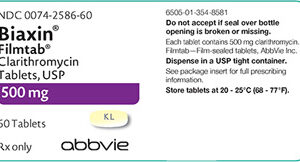
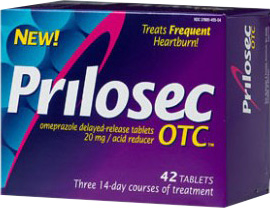
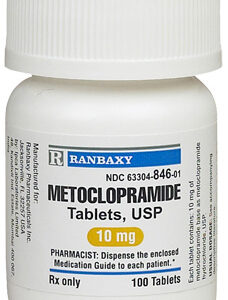
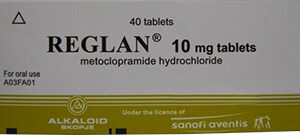
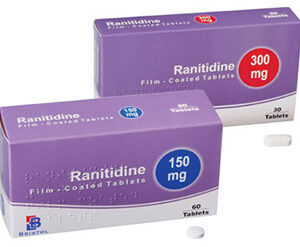
Reviews
There are no reviews yet.